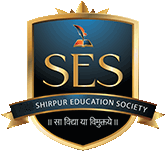Department of Computer Engineering
Vision of the Institute
Fostering technical excellence through ethics, sustainable education, innovation and research.
Mission of the Institute
To impart high quality Technical Education through:
- M1. Innovative and Interactive learning process and high quality, globally recognized instructional programs.
- M2. Fostering a collaborative scientific temper among students with ethical responsibility towards the society.
- M3. Preparing students from diverse backgrounds to have aptitude for employment, entrepreneurship and research with a spirit of Professionalism.
- M4. To contribute to nation’s sustainable development.
Vision of the Department
To provide high quality Computer Engineering education with socio-moral values.
Mission of the Department
- M1 To provide state-of-the-art ICT based teaching-learning process.
- M2 To groom the students to become professionally sound computer engineers to meet emerging needs of industry and society.
- M3 To make the students employable professionals by inculcating ethical values.
Program Educational Objectives (PEOs) of the Department
- PEO1 Graduates will have technical proficiency, lifelong learning skills to become a professional, entrepreneur and leader.
- PEO2 Graduates will function effectively in diverse cultural and professional environments, respecting societal perspectives and inclusive practices.
- PEO3 To foster ethical and social values to be socially responsible human being.
Program Specific Outcomes (PSOs)
- PSO 1 Apply programming principles, algorithms, and data structures to design efficient software solutions and intelligent systems using structured, object-oriented, and emerging technologies.
- PSO 2 Design, develop, and deploy responsive web and mobile applications integrated with databases and cloud platforms, leveraging modern frameworks and tools for digital transformation.
